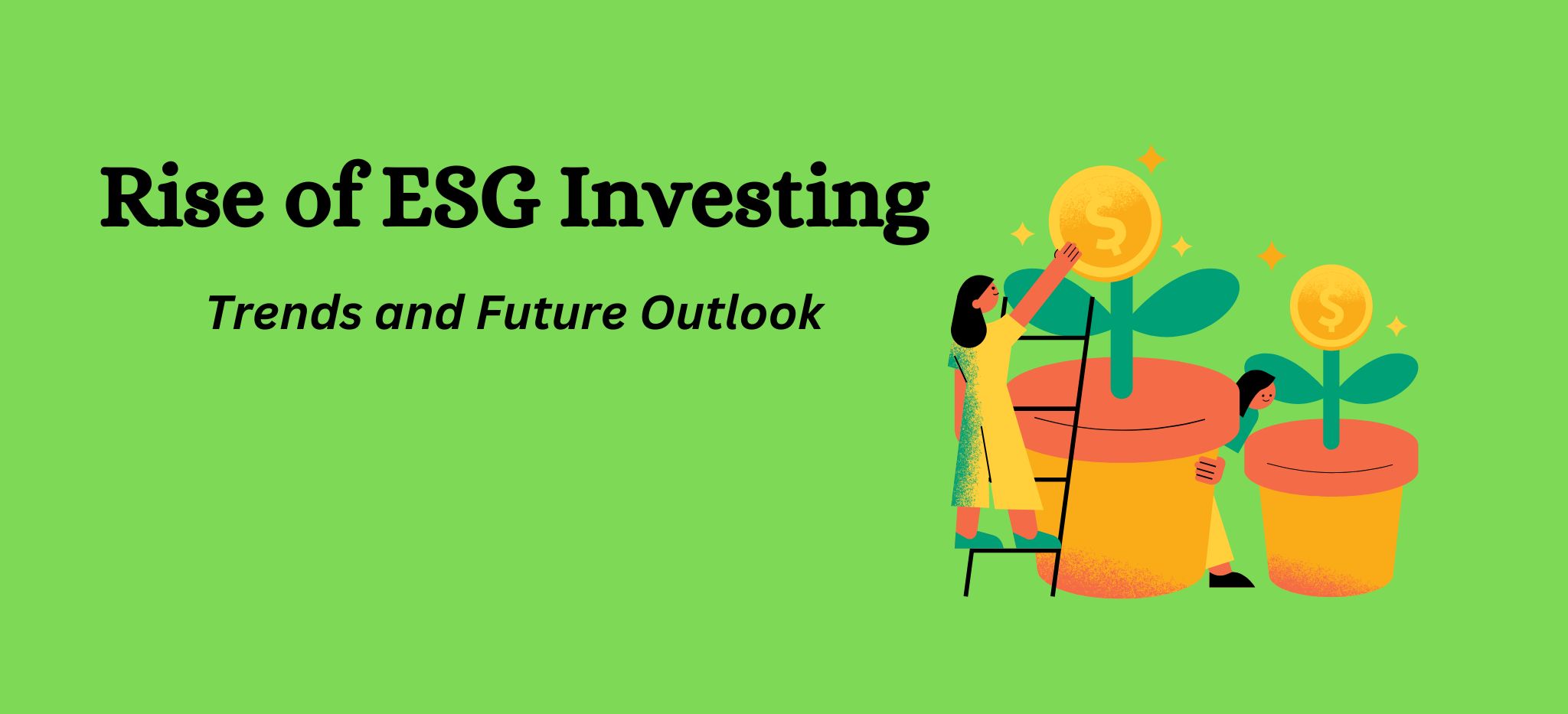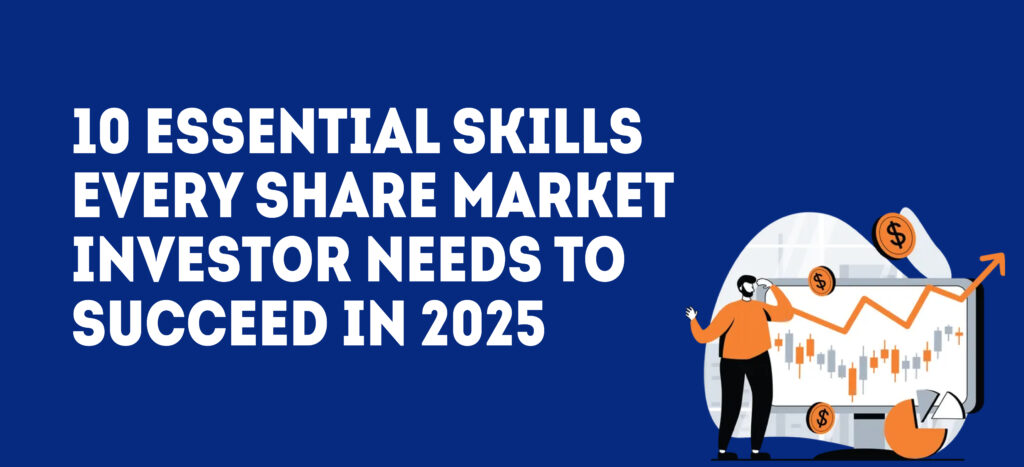Environmental and well-being paired with good governance have become strategic to every company’s growth and reputation. Together, the whole thing is called environmental, social, and governance (ESG). It is an important factor driving a company’s reputation and business. Now, with ESG comes ESG investing – a unique investment approach. As an investor, learning about ESG investing will help you enhance your investment strategy. So, let’s look at some aspects associated with it.
What is ESG Investing?
ESG investing refers to how responsibly companies run their business. It involves analyzing and assessing a company’s investment worth based on three factors, including environment, social, and governance. Each factor is uniquely important and covers various aspects, which together contribute to a company’s ESG value.
- Environmental: It includes evaluating the company’s corporate climate policies, waste reduction, pollution control, toxic waste management, energy use policy, natural resource conservation, animal treatment, and environmental compliance. These factors help you know the company’s commitment to environmental well-being.
- Social: Social impact involves assessing an organization’s stakeholder relationships, CSR activities, employee treatment and satisfaction levels, workplace welfare, etc. It shows how committed and responsible the company is towards society.
- Governance: This is associated with various elements like honesty, transparency, integrity, leadership and workplace diversity, shareholder responsibility, etc. Governance refers to how ethically and seamlessly a company operates. It also includes checking if the company has conflicts at its top levels, whether it makes political contributions for favorable treatment, or has illegal conduct.
Why is ESG Investing Popular Among Investors?
Here are some reasons that make ESG investing a preferred approach among investors worldwide.
- Growing awareness about environmental issues is one of the most important reasons. No investor wants to be part of a company that earns profits by harming the environment or disrupting ecosystems.
- Every company has a responsibility towards society. Investors understand this and prefer investing in companies that ensure fair treatment to everyone and contribute to social well-being through their policies, conduct, and CSR activities.
- Ethics and values are important for every business. Accordingly, investors also check for the company’s leadership, risk management policies, investor protection approach, etc., before investing in it.
- Companies with ESG practices perform better financially in the long run, manage risks effectively, attract top talent, and serve society more responsibly. Hence, they stay more financially stable and provide better returns.
- Younger investors, in particular, are more conscious about environmental well-being. They consider companies with an excellent ESG score fit for investment.
As mentioned earlier, ESG investment is a long-term value-creation strategy. Companies that follow it are more adaptive to market trends, consumer preference changes, and environmental needs. Investors prefer such companies as they feel assured of the safety of investments.
Stay ahead in the fast-paced financial world! Subscribe now for the latest insights and updates on financial news, ensuring you’re always informed and ready to make smart decisions.
Current ESG Investing Trends
Increased Demand: ESG is working as a game-changer in India. Reports suggest about 80-85 percent of companies in India plan to grow their ESG investments by about 17-20% in 2024 to stay competitive. This can further increase the demand for ESG among retail and institutional investors.
- Entry in Mainstream Finance: ESG isn’t a side approach or side-strategy anymore. It has become a mainstream policy, given the importance investors give to the environment, social welfare, and governance. Accordingly, ESG factors are increasingly being incorporated into conventional investment strategies, making companies with a good ESG score more attractive to investors.
- Regulatory Developments: ESG reporting will slowly become compulsory for all. So, every company will have to make visible efforts to grow its ESG score with its policies, approach, strategies, and more.
- Standardized Reporting: As ESG reporting frameworks grow in numbers, there is a demand for standardization. Common reporting standards for everyone can simplify ESG comparisons for stakeholders and investors.
Performance Insights
Let’s see how ESG investments perform compared to traditional investments.
ESG investments often perform better than conventional investments. And they do so in many ways. Companies with solid ESG practices are better managed and stay prepared for uncertainties. Besides, these investments prove beneficial in the long run as well. For instance, according to reports, nearly 60% of sustainable funds performed better than conventional investments.
Additionally, ESG-driven companies are usually more adaptive and cautious. They integrate the latest technologies and follow a futuristic approach to predict uncertainties and prepare for risks, whether environmental or social. Hence, they remain relatively less affected by the changing business environment and are likely to perform well even when the market is experiencing a low.
Technological Advancements
Technology plays a role in ESG as well. It is helping people assess companies better. For example, the entry of AI (Artificial Intelligence) and data analytics is changing the way people measure and monitor a company’s ESG performance. Advanced predictive analytical capabilities are helping companies predict risks and opportunities related to ESG.
On the other hand, robo-advisors have emerged as important elements in this area. They provide advanced systems to scan thousands of investments and identify those meeting the ESG criteria perfectly. They also provide access to ESG portfolios to help investors choose from a range of companies. Additionally, these robo-advisors monitor ESG portfolios for compliance with the specified values and rebalance automatically to ensure strategic asset allocation.
Challenges in ESG Investing
ESG investment has some challenges like every other investment strategy. Some of them include the following.
- Greenwashing: Some companies provide false information about their ESG efforts. This can misguide investors and lead to incorrect investments. Therefore, analyzing a company properly through experts like fund managers, etc., proves useful in making informed decisions.
- Standardization Issues: The absence of market standardization makes it difficult for investors to determine a company’s ESG worth. In many cases, investors do not have fixed ESG evaluation criteria, and framework. Besides, the lack of standardization in ESG data collection makes assessment and investment more complicated.
The Future of ESG Investing
ESG is here to stay, particularly given the growing concerns for the environment, society, and governance. Hence, the future for ESG investing is bright and promising.
- Predictions for Growth: As mentioned earlier, companies will focus more on ESG investments and enhancing their reputation. Reports suggest ESG assets will grow to reach the range of USD 45-50 trillion by next year.
- Emerging Sectors: At least in India, sectors like renewable energy, EVs, green hydrogen, and climate technology are expected to see growth in ESG investing. Some others also include banking, healthcare, and IT.
- Investor Education: Investors who aren’t aware of the concept of ESG investment will have to be educated and made aware of ESG assessments from a long-term point of view. Stock market classes in Pune will have a large role in this regard.
Final Thoughts
In business and the stock market, everyone intends to earn profits and grow their wealth. However, as an investor, will you want to invest in a company that harms the environment or society or doesn’t have a good governance policy? Of course, not! This is where ESG analysis steps in. Thus, you must look at a company’s ESG worth and assess all of the factors we discussed above, along with the other regular ones, before investing. We hope this helped. For more insights into ESG investing and overall share market investments, enroll in our share market courses in Pune. Call us at +91 7068001919 for more information.






